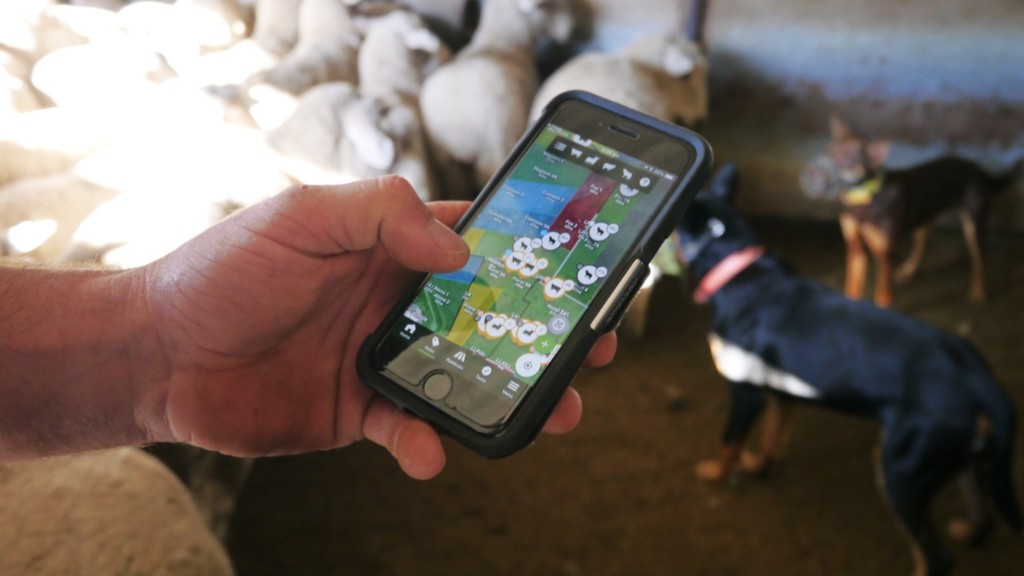AgriWebb’s investor journey to the UK
Fifth-generation livestock farmer and AgriWebb co-founder, Justin Webb shares his tips and tricks about launching an Australian startup, how to access capital in complex economies and why knowing your market is everything.
“Gathering too much information about potential new markets, is one mistake you won’t make when expanding into Europe and the UK,” Justin Webb tells Australian companies.
“Being precise about what you’re launching is key – and government trade agencies can significantly boost your war chest of understanding,” said Justin.
Six years on from AgriWebb’s launch in 2014, the startup that digitised livestock and farm record-keeping, is a world leader and employs 55 staff across Sydney, London, Belfast and Denver, with a footprint across South Africa, New Zealand, the US and Brazil.
“It doesn’t matter whether it’s agtech or fintech, these are very big and complex economies you’re going into and you really need to investigate the market, segment the market and work out if your value proposition is equally matched by a customer base,” said Justin.
“We worked with Austrade and Australian representatives of the UK Department for International Trade (DIT) for the whole journey, as our integration evolved from assessing localisation and price sensitivity to hiring people and applying for visas, grants and bank accounts in the UK.
“On my initial visit in 2016 it was amazing the meetings I was able to have over 10 days with the decision-makers, the power brokers of the UK agricultural industrial area sitting across the table, through these agencies. From one trip I could see the opportunity to have an impact in that market.”
RELATED ARTICLE: What is impact investing and why it’s not charity
Two years later AgriWebb raised a Series A funding round worth A$14 million from the UK agrifood investor Wheatsheaf Group, which included the acquisition of FarmWizard, an established UK livestock management software company.
Agritech to boost efficiencies and farm profitability
FarmWizard provided the ability to expand the digital record-keeping platform to share information with advisors and processors further down the supply chain, Justin said, and in turn, with retailers and consumers.
“FarmWizard’s technology has enabled us to add a deeper level of data for individual animal tracking that farmers can share with their consultants, as well as processors keen to meet the demands of retailers for traceability and transparency about farm management practices,” he said.
“Consumers want to know the provenance of the food they eat. What was its carbon footprint? What was the animal husbandry and the impact on where it came from? But the supply side hasn’t changed. In the UK less than 50% of farms are actually profitable because they’ve been heavily subsidised.
“That doesn’t mean they’ll go out of business. The adoption of cheap and accessible and incredibly powerful technologies mean that we can start to not only feed the population that demands it, but we can do so from the existing infrastructure.”
“We’re creating a technology at AgriWebb that incrementally makes the production of food more efficient, more sustainable, and improves profitability.”
Trade agencies provide a wealth of information
Sydney-based Tess Thomas, UK DIT’s Director for Investment for Australia and New Zealand, said AgriWebb was a textbook case for the bespoke advice offered free by the agency.
Tess leads a team of seven senior investment professionals assisting local companies to expand and grow their business in the UK, by connecting them with enterprise partners to establish valuable contacts and networks.
“It’s really about doing that research, understanding where you need to go in the market, understanding the competitive landscape and the regulatory environment. We work with some companies 12 to 18 months in advance before they’re ready to go over.
“Think about immigration requirements, setting up your business registration. How does that look? Is it a subsidiary? Is it going to be a global HQ? Do you want to export from there? There’s a lot of things to think about and plan well in advance.”
RELATED ARTICLE: How trade agencies help businesses go global
How to access capital is one of the most common queries, Tess said.
“The UK venture capital market has specialist investors in specialist sectors. There is a whole world of agtech VC investors who regularly meet up in the Silicon Roundabout, the epicentre of UK tech in London, so we advise going there to get access to that kind of capital.
“Another source is Innovate UK, the government’s innovation agency with a mission to commercialise R&D. It provides access to experts, academia and infrastructure to help you commercialise your product or service, and this grant funding mechanism they have is a really good way to access capital.”
Justin, a graduate of Oxford and Harvard Universities, points out that there are different dynamics in approaching conversations about capital in the UK, compared to the US.
US versus the UK – different dynamics when seeking capital
“In the US, you need to be a sledgehammer. It’s such a big market but you’re one of 20 meetings that day and a thousand meetings that month. How are you going to stand out from the crowd?
“But in London and in Europe, they are very precise. If they are agtech, they really understand it from a global perspective and they have very clear execution goals.
“My advice is to really do your homework, really understand not just the brand you’re talking to, but the background and interests of the person you’re meeting.”
RELATED ARTICLE: Setting the scene: The UK agritech market opportunity
The family office, where a private advisory firm is set up by an ultra-high-net-worth individual to manage their investment portfolios and generally cater to their financial and legal needs on a day-to-day basis, is also much more evolved in London, said Justin.
“It’s multi-generational, it’s fully staffed, they have specific people employed to understand, evaluate, and invest in venture. And you can leverage that opportunity to bring your idea to a decision-maker straight off the bat, which you’re less likely to find in Australia or in the US.”
Australia’s ‘unique’ brand should be leveraged
Australia’s global standing in agritech is ‘quite unique’, Justin said, and should be leveraged by agritech entrepreneurs.
“It’s tough to do a fintech or consumer app here in such a small market, but in agtech our brand is very exportable. Australia is the largest exporter of sheep meat, we’re the second-largest exporter of beef, we’re the fourth largest exporter of grain.
“We have one of the most advanced traceability platforms for all livestock in the world, and the size and scale of our corporate farms blows away almost anywhere else, yet the sophistication of our smallest operators is right up there.”
Justin is justifiably proud of what AgriWebb has achieved so far.
“I realise we’re creating a technology that incrementally makes the production of food more efficient, more sustainable, and improves profitability.
“We’re improving such a core industry that benefits truly everyone. And I think that’s the best of technology: isn’t technology meant to make our society better?

Pandemic prompts move from Sydney to the farm
The advent of the COVID-19 pandemic saw Justin bring his family from Sydney to the home farm, Eddington near Camperdown in Victoria’s Western District.
The move reaffirmed AgriWebb’s guiding philosophy: Live for the farmer.
“Working on AgriWebb from Sydney is fantastic because you’re right there with the developers, but you tend to get caught in spreadsheets, especially in my role,” said Justin.
“You’re looking at the next sales number, the next product release, what’s driving those top-line metrics and then, frankly, trying to on-sell them to investors and stakeholders.
“Down here, I see our staff using AgriWebb on a day-to-day basis. They’re reviewing the feed in paddocks and checking inventory – the tool we originally conceived here is a critical part of the daily operation, which is amazingly satisfying to me.”
Being on the farm also reinforces that, for all the uncertainties caused by COVID, farmers’ work is as essential as ever.
“The animals don’t know the rest of the world is in lockdown; they still need to be fed, and we still need to be out managing pastures and recording inputs – the life cycle of operations carries on, otherwise, the shelves go bare.”
For information on the UK please visit www.great.gov.uk or contact Johnny Henwood, Business Relationship Manager – Sydney, UK DIT [email protected]. For more information on Australia please visit www.austrade.gov.au/agriculture40 or email [email protected].
Enjoyed this story? Want to learn more about the Asia Pacific region’s innovative agrifood tech ecosystem? Sign up for our newsletter here and receive fresh stories about global leaders, farmers, startups and innovators driving collaborative change.
